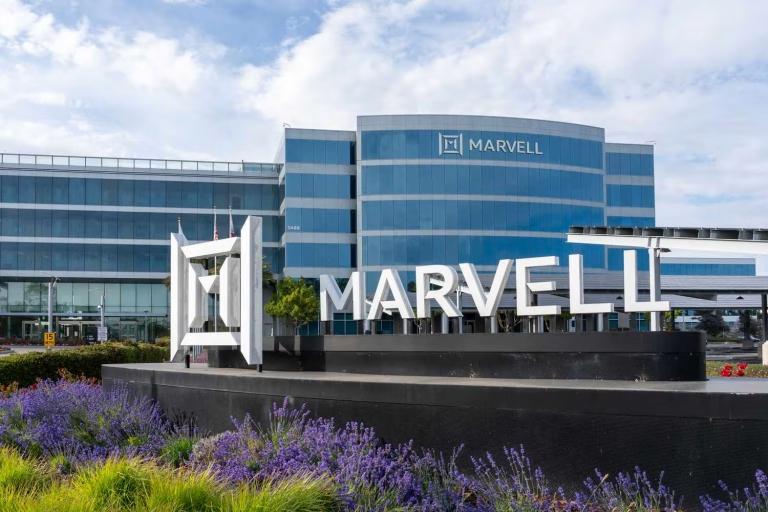The New Digital Frontier
The digital landscape of 2025 is undergoing a profound transformation. At the intersection of artificial intelligence, the metaverse, and marketing, forward-thinking companies are reimagining how they connect with customers. As immersive technologies mature beyond their experimental stages, this convergence is giving rise to innovative engagement strategies that are reshaping the future of business.
According to McKinsey & Company, the metaverse could generate up to $5 trillion in value by 2030, with e-commerce expected to account for $2.6 trillion of that. Gartner, meanwhile, forecasts that by 2026, a quarter of the global population will spend at least an hour a day in the metaverse — whether for work, shopping, education, or leisure. For brands across North America, the UK, Australia, and beyond, understanding this shift isn’t just smart — it’s essential.
The Evolving Metaverse Ecosystem in 2025
From Fragmented Platforms to Interoperable Experiences
The metaverse in 2025 has matured significantly. Key developments include:
- Interoperability advancements: Standards like those from the Metaverse Standards Forum are enabling assets to move between platforms.
- Spatial web growth: WebXR standards are making immersive experiences accessible via browsers, without downloads.
- Blockchain integration: Decentralized tech is enabling secure ownership, commerce, and identity verification.
- Persistent environments: Worlds that evolve even when users are offline are becoming the norm.
These innovations are shifting the metaverse from gaming-centric spaces to broader business and social ecosystems.
Key Platforms Shaping the Current Landscape
| Platform | Company | Primary Focus | Current Marketing Applications |
|---|---|---|---|
| Horizon Worlds | Meta | Social interaction & entertainment | Brand spaces, virtual events |
| Decentraland | Decentraland Foundation | User-owned virtual real estate | Virtual storefronts, advertising space |
| The Sandbox | Animoca Brands | User-generated content & gaming | Brand partnerships, virtual experiences |
| Omniverse | NVIDIA | Enterprise collaboration & simulation | Product design, digital twins |
| Microsoft Mesh | Microsoft | Professional collaboration | Corporate meetings, training simulations |
AI-Powered Marketing in the Metaverse
Behavioral Analytics and Enhanced Engagement
AI is revolutionizing how marketers understand and respond to user behavior in virtual environments. According to the IAB, immersive analytics go far beyond traditional metrics:
- Movement tracking reveals engagement paths
- Social data highlights community dynamics
- Avatar behavior can reflect emotional responses
- Environment preferences guide spatial design improvements
When powered by machine learning, these insights allow marketers to tailor strategies in real time.
Personalization Beyond Traditional Boundaries
Deloitte Digital notes that AI personalization in virtual worlds outpaces what’s possible on the web:
- Contextual product suggestions based on in-world activities
- Custom-built virtual spaces tailored to user preferences
- One-on-one interactions that feel personalized, even in public forums
Take Nike’s “Nikeland” on Roblox: it uses in-game data to adjust user experiences and recommendations.
Advanced Virtual Assistants for Brand Representation
Accenture reports that AI-powered brand assistants are moving far beyond chatbots. These digital avatars now:
- Engage in nuanced, contextual conversations
- Deliver consistent brand messaging
- Offer product demos and tutorials
- Collect natural feedback from users
Gucci and Louis Vuitton are already using such assistants in their digital campaigns to guide users and elevate brand experiences.
Strategic Marketing Approaches in the 2025 Metaverse
Immersive Storytelling and Narrative Environments
The metaverse brings stories to life. According to the Content Marketing Institute, top brands are using immersive storytelling to:
- Let users explore brand history in interactive formats
- Communicate values through gamified or experiential storytelling
- Allow communities to shape ongoing narratives
Mastercard’s “Priceless Experiences” virtual environments let users participate in high-touch brand activations aligned with its ethos.

Virtual-to-Physical Commerce Integration
Harvard Business Review highlights that brands are merging the metaverse with real-world commerce:
- Digital previews let customers examine products virtually
- AR testing environments mimic physical use before purchase
- Integrated commerce pathways create seamless shopping journeys
IKEA has led this evolution through AR and digital design tools, helping users visualize furniture in their own homes — and extending that into more immersive 3D experiences.

Community-Centric Brand Ecosystems
Forrester Research emphasizes community as the cornerstone of metaverse branding. Winning strategies include:
- Branded virtual spaces where users meet and interact
- Co-creation initiatives inviting users into product development
- Shared experiences that build loyalty through collaboration
Adidas’s “Into the Metaverse” NFT project enabled token holders to unlock both physical and virtual perks — a strong example of brand community in action.

Data Ethics and Privacy in the AI-Metaverse Marketing Ecosystem
The Enhanced Privacy Imperative
The World Economic Forum warns that metaverse platforms can collect deeply personal data, including:
- Eye movements, gestures, and expressions
- Behavioral patterns and inferred psychology
- Relationship dynamics and conversation patterns
- Physical surroundings via AR/MR tools
Forward-looking companies are prioritizing:
- Transparent data policies
- Granular consent options
- Data minimization practices
- Aggregated, anonymized analytics
The Trust Advantage
Edelman’s Trust Barometer shows that trust is a competitive advantage: 81% of consumers say brand trust influences purchasing. Transparency, ethical data use, and user control are now core elements of marketing strategy.
Measuring Success: New Metrics for Metaverse Marketing
Beyond Impressions: Multidimensional Engagement Analytics
The Marketing Measurement and Attribution Council (MMAC) stresses that brands must go beyond pageviews. New performance metrics include:
- Engagement depth: How immersed users are
- Community input: How many users co-create or contribute
- Cross-platform mapping: Tracing user behavior across touchpoints
- Emotional loyalty: Relationship strength, not just brand recall
Key Performance Indicators for 2025 Metaverse Marketing
| Metric Category | Traditional Digital Metrics | Evolved Metaverse Metrics |
| Reach | Page views, impressions | Environmental visits, session duration |
| Engagement | Click-through rates, time on page | Interaction frequency, participation depth |
| Conversion | Online purchases, form completions | Virtual-to-physical transitions, community joining |
| Loyalty | Repeat visits, subscriptions | Community participation, advocacy actions |
| Brand Impact | Surveys, sentiment analysis | Emotional connection, engagement quality |
Future Outlook: Emerging Trends for 2026 and Beyond
Enhanced Sensory Marketing
IEEE forecasts show a rising emphasis on sensory marketing in XR environments:
- Haptic feedback brings touch to digital interactions
- Spatial audio enhances realism with 3D soundscapes
- Advanced rendering blurs the line between virtual and physical worlds
Decentralized Community Governance and Brand Participation
Deloitte highlights how blockchain is empowering communities:
- Tokenized loyalty offers digital value and influence
- Collaborative governance lets users shape brand decisions
- Transparent input systems give users a seat at the table
AI-Enhanced Environment Development
According to MIT Technology Review, brands will soon harness AI to:
- Build environments that adapt to users
- Employ AI-driven avatars with evolving personalities
- Deliver experiences tailored to unique individual behaviors
Strategic Imperatives for Forward-Thinking Brands
The fusion of AI, the metaverse, and marketing in 2025 marks a pivotal moment. To stay ahead, brands must:
- Foster ongoing digital relationships beyond single transactions
- Implement privacy-first, ethical data practices
- Assemble creative-technical hybrid teams
- Embrace agility to evolve with technology
- Build immersive brand presences aligned with core values
The brands that will lead in this new era are those that treat the metaverse not as a novelty, but as a foundational platform for connection, storytelling, and community. By embracing this convergence, businesses can forge deeper, more meaningful relationships that transcend the traditional digital divide.












